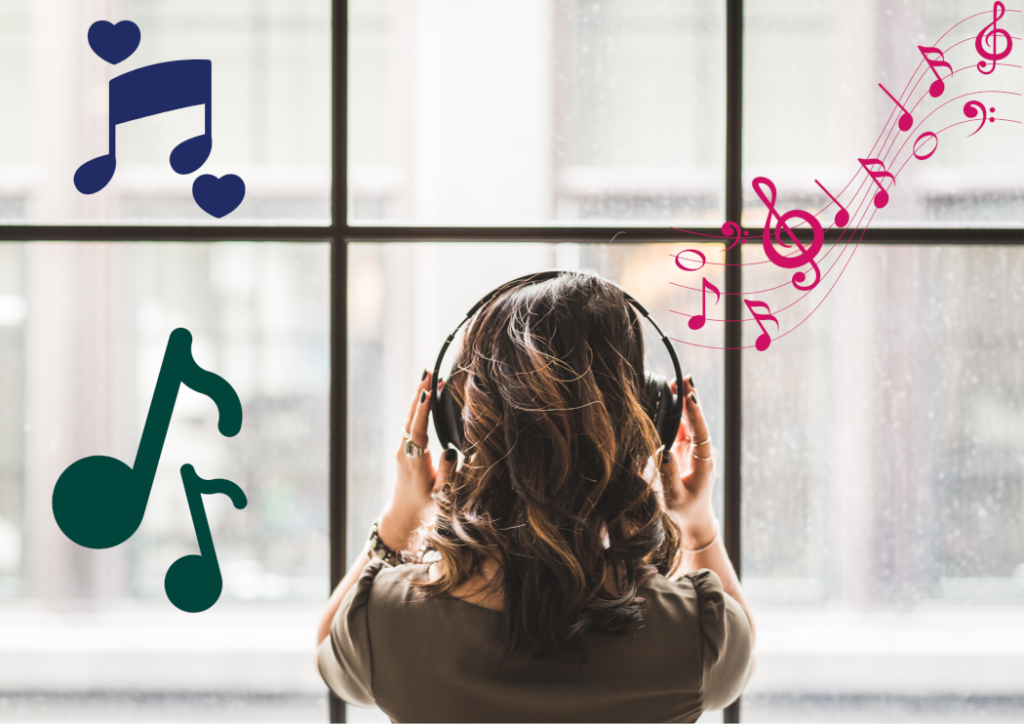Recent Posts
Search Topic
Music has been ubiquitous in human culture for centuries, captivating individuals across diverse backgrounds and societies. The enchanting melodies, rhythmic beats, and lyrical compositions profoundly impact our emotions, thoughts, and behaviors. The science behind why certain types of music resonate with us deeply is a fascinating exploration of the realms of psychology, neuroscience, sociology, and evolution. Understanding the psychology of music preferences offers insights into the intricate workings of the human mind and sheds light on why we are drawn to specific genres, melodies, and artists.

From singing in the shower to blasting tunes in the car, music is a universal language that speaks to us on a deeper level than words ever could. But why do we love certain types of music? Let’s dive into the fascinating world of music psychology to find out.
Throughout history, music has played a central role in human culture and society. From ancient chants to modern pop hits, our music appreciation has evolved. Understanding how our ancestors valued and engaged with music can provide insights into our current musical preferences.
Ever found yourself tapping your foot uncontrollably to a catchy tune? That’s your brain’s way of responding to melodic patterns. Our brains are wired to process and enjoy structured sequences of sounds, making melodies a key player in our musical preferences.
It’s not just the melody that gets us grooving – rhythm and beat also play a crucial role in shaping our neural responses to music. From heart-pounding bass lines to toe-tapping rhythms, the right beat can get our brains firing on all cylinders.
Our musical tastes are not just a matter of personal preference – they are also heavily influenced by the cultural context in which we live. Whether it’s traditional folk songs or contemporary pop hits, our cultural background shapes the music we love.
Ethnicity and social background can also play a significant role in determining our music preferences. From the influence of family traditions to the music we hear in our neighborhoods, our cultural identities help shape the songs that resonate with us.
Feeling down? Need a pick-me-up? Turn on your favorite song and let the music work its magic. Research shows that music can act as a powerful mood regulator, helping us navigate the highs and lows of life with a melody in our hearts.
Music therapy is more than just a trendy buzzword – it’s a scientifically proven way to improve mental health and well-being. Whether calming our nerves with classical music or pumping us up with energetic beats, our favorite tunes have the power to heal and uplift us.
Evolutionary Perspectives on Musical Taste
Ah, music, the universal language that makes us tap our feet and belt out tunes in the shower. But why do we love certain types of music more than others? Evolutionary perspectives suggest that our musical taste isn’t just random.
Believe it or not, cavemen might have jammed out around the fire for a reason. Music could have played a role in human evolution by helping our ancestors bond and communicate. So, next time you’re at a concert, thank your prehistoric pals for starting this trend.
From tribal drum circles to modern-day concerts, music has always brought people together. It helps us form social connections and express emotions without saying a word. So, when you share a favorite song with a friend, you’re not just exchanging tunes, you’re strengthening your bond.
Your taste in music is as unique as your fingerprint. It’s shaped by a symphony of personal experiences that make you groove to some beats and cringe at others. Let’s dive into how your musical journey unfolds.
Remember that catchy jingle from your childhood cereal commercials? Early exposure to music can leave a lasting imprint on your preferences. So, whether it’s nursery rhymes or classic rock, what you hear growing up can set the stage for your musical tastes later on.
That breakup ballad you can’t stop playing? Or the pump-up anthem that gets you through tough times? Life events have a way of weaving themselves into your playlist, creating emotional connections to songs that resonate with your experiences.
Are you team Beyoncé or team Bowie? When it comes to music, gender can play a role in what tunes you vibe with. Let’s explore how societal norms and biological factors influence our musical choices.
Is it true that guys prefer rock while gals lean towards pop? Gender stereotypes can influence our music preferences, but breaking free from these norms allows us to enjoy a wider range of genres without judgment.
Whether it’s the influence of hormones or societal expectations, our gender can impact the types of music we’re drawn to. But don’t let labels limit your playlist – music is a boundless sea of melodies waiting to be explored.
Ever get transported back in time by a song? That’s the magic of memory and association at play. Let’s uncover how your past experiences shape your present musical enjoyment.
That song from your first road trip or your high school prom? Memories are woven into the fabric of music, enhancing the emotional impact of songs and making them resonate on a deeper level.
From joy to heartbreak, music has a way of capturing our emotions like nothing else. Whether it’s the soundtrack to your triumphs or solace in your sorrows, the emotional associations we form with music can turn a simple melody into a lifeline.
In conclusion, the profound connection between music and our emotions, memories, and identities underscores the intricate web of influences that shape our musical preferences. By delving into the science behind why we love certain types of music, we gain a deeper appreciation for the role that music plays in our lives and societies. Whether it is the soothing melody that calms our anxieties or the upbeat rhythm that energizes our spirits, music continues to be a powerful medium that resonates with us on a deeply personal level, transcending language, and cultural barriers.